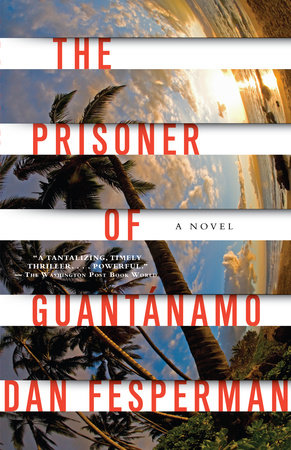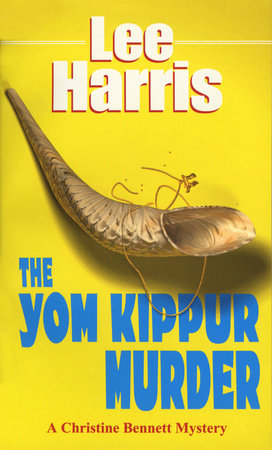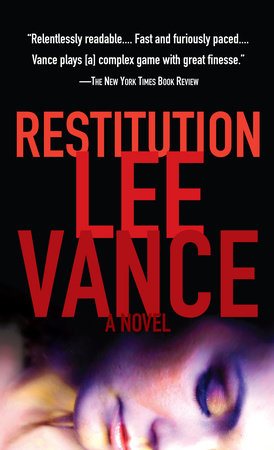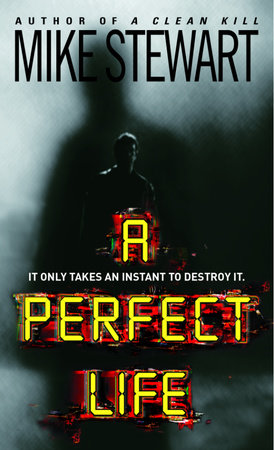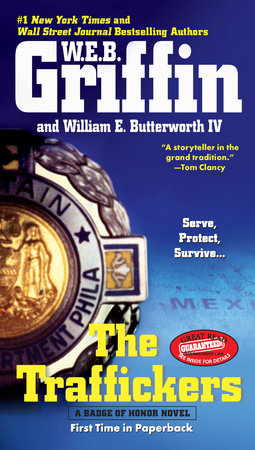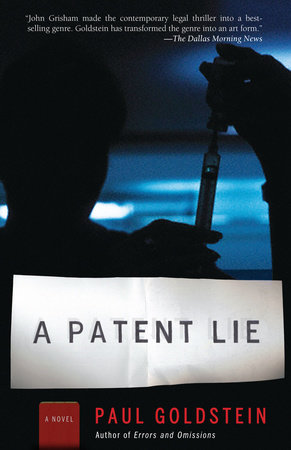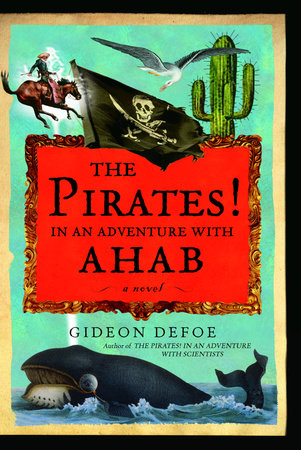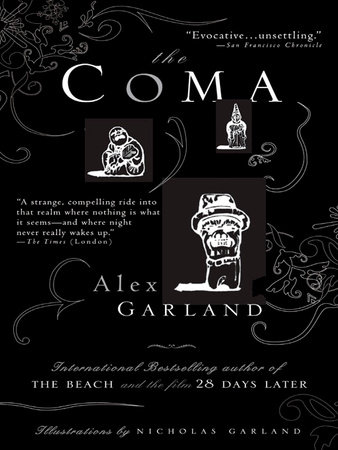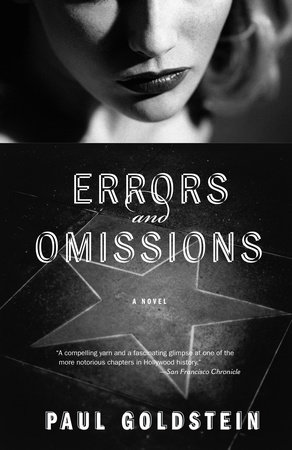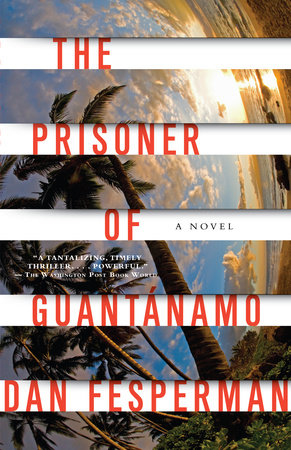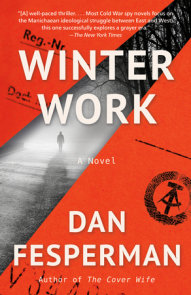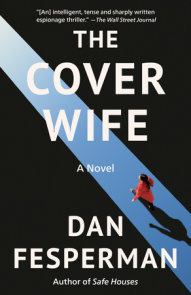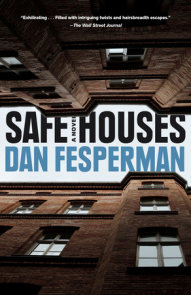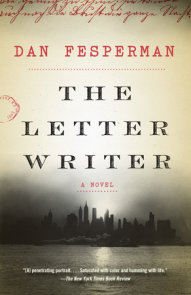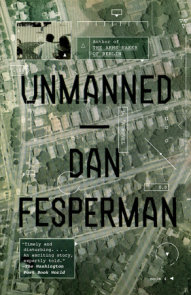Author Q&A
Q) You set your last novel, The Warlord’s Son, in Afghanistan. Your new novel, ThePrisoner of Guantanamo, is set at the now famous prison camp. Why is it important for you to base your fiction on current events?
A) I’ve always been fascinated by the way events in the here and now echo so much of what has gone on before. So I guess you could say that it’s not just the immediacy I find attractive, it’s also the timelessness. In Afghanistan, foreign empires have been blundering around for centuries, always faring worst when they’re convinced they know best. How could you not be intrigued by the possibilities of exploring the way that’s playing out now, right under our noses?
Guantanamo, to me at least, represents yet another period in our history when we’ve let hubris and insecurity push us to the limits of what is considered “American behavior.” There is a side us that, when threatened, wants to just kick ass and take names and forget about rules and rights for a while. But if you look back through history, this has always produced its own set of problems. So it was fascinating for me to offer a fictional take on some of the forces in collision down at Gitmo.
Q) When and why did you decide that you wanted to set a novel at Guantanamo?
A) It partly goes back to a trip I took there way back in the late 1970s, covering a troop exercise ordered by President Jimmy Carter during a time of tension with Cuba. The place was much more isolated then–no Internet, no satellite dish TV, no 24-hour news cycle–and it struck me as one of the more surreal landscapes I’d ever set foot on. So when the Pentagon decided to turn the place into a sort of American Devil’s Island, I couldn’t resist the lure of the atmospheric possibilities. Six-hundred prisoners from 19 countries, plucked from the heart of the age-old East-West divide, surrounded by a few thousand soldiers who are slowly going stir crazy in the tropical heat. And everything is watched closely by the Cubans in their watchtowers. The geography is also very striking. Look in one direction and you would think you were in the high desert, with big cactus plants all over the hills. Turn around and you’re staring at a Caribbean vista you might find at Club Med. Then a three-foot iguana strolls by, followed by a Marine on patrol in greasepaint and camouflage. Perfect.
Q) How did you research The Prisoner of Guantanamo? How much access did you have to the camp?
A) I took the Pentagon’s standard two-day media tour, which involves a whole lot of minders following and monitoring your every move, plus a brief swing through the prison itself. You’re ordered not to speak with any prisoner. In fact, if you even make a hand signal or extended eye contact, the rules say you’re kicked out, although in reality the prisoners stare at you and you stare right back. At the time there were only a few other visitors–a couple of BBC guys and a camera crew. The military let us talk to guards, officers, cooks, doctors, chaplains and so on, but never without an Army press officer sitting or standing nearby, so you were never sure about the candor except in response to the most innocuous
questions. We also got a peek at Camp Iguana, the juvenile cellblock over on a bluff by the ocean. The best part of the experience was simply getting a physical feel for the place, for the sake of getting a grasp of the atmospherics. Most of the rest of my research occurred after I got back, and involved speaking with interrogators and officers who had done a hitch there. They were a lot more candid about everything one-on-one, with no minders around. The trove of hundreds of Gitmo memos unearthed by the American Civil Liberties Union in a Freedom of Information request was also invaluable, in that it offered a nice window onto the infighting between the FBI and the Pentagon over interrogation strategies.
Q) In your novel, you portray Guantanamo as an intricate, secretive world where no one is to be trusted–a world within a world. How true to life is this description?
A) I think the rampant mistrust was particularly prevalent during the period when the book was set–late summer of 2003. Just as in the novel, there were some arrests made then of a couple of Arabic speakers who were charged with espionage. There was a lot of loose talk about a possible spy ring, and at one time as many as a dozen people were under suspicion, so the atmosphere was fairly poisonous. Most of the charges came to nothing, and in the end some skeptics suggested they had a lot more to do with personal vendettas and cultural misunderstandings, which was hardly surprising. An odd footnote to that was that the first person arrested, a Muslim Army chaplain, was a fellow I’d interviewed down there only a few weeks earlier. He was mild-mannered, and so careful in his answers that he was practically no help at all for my purposes, although when I bumped into him later at dinner he loosened up a bit. From the moment I first heard about the charges against him, it didn’t seem to fit with the man’s personality. Sure enough, the whole case against him fell apart, and turned out to be nothing. But in a hothouse environment like Gitmo, the smallest little shoots of suspicion can grow into something pretty menacing almost overnight. That whole episode gave me a much better understanding of some of the dynamics down there.
Q) Revere Falk, the main character and an interrogator at the camp, is an Arabic speaker assigned to try to break a disturbed Yemeni who may or may not have valuable intelligence. How dangerous is this work for interrogators, especially for those who speak Arabic?
A) I don’t think it’s dangerous at all, except maybe to your mental stability. The people you’re interrogating are chained to the floor, you have an MP nearby at all times, and you’re pretty much in complete control of the situation. The prisoners don’t know your name, and there’s no way you’re going to tell them. The biggest hazard, if you can call it that, is possible damage to your career. The FBI people–at least in the time I’m dealing with in the book–ran up against a lot of frustration in trying to do things their own way, and felt like they were often spinning their wheels. The military officers were under a lot of pressure to get results, and weren’t always happy with the shortcuts they were taking to get them. It’s a pretty terrible place to have to go to work every day, and people tend to burn out quickly. But it sure beats the hell out of being on the other side of the wire.
Q) As Falk investigates the death of an American soldier who washed up on the wrong side of the border in Cuba, he realizes that operatives from his own government are trying to bury the investigation. Unfortunately, we see this happen in our own government, with the Abu Ghraib prison scandal, for instance. How much did this influence your story?
A) I don’t think it was Abu Ghraib that influenced me as much as the usual institutional tendency of all organizations, whether the Pentagon or General Motors, to try and sweep embarrassing problems under the rug. For a writer, the fun part is that this urge to cover up often produces more problems than it solves, and it sets up a lot of interesting tensions. Your characters are faced with choices between the organization’s values and their own. Everybody has to do a lot of thinking about what is right, and what is just, and whether or not those standards are flexible when you’re facing an enemy who doesn’t play by the same rules. And if you’re covering your tracks, isn’t that really a tacit admission that you’re ashamed of the course you’ve chosen? It’s a terrible thing to be caught in the middle of, but it offers pretty wonderful material for writers.
Q) Your novels are always incredibly topical and yet also highly entertaining page turners. How do you achieve that balance of providing both information and entertainment?
A) You always have to value the needs of the story and the needs of your characters over the need to be topical. Once you’ve captured the essence of a place you can pretty much take the story in any direction you want without sacrificing plausibility. You hope that the feel of the moment will accurately reflect the temper of the times. But this doesn’t mean you’re trying to mimic reality. What you’re striving for is an alternative reality. The scenery may look the same, and smell the same, and the issues at stake might be familiar enough to anyone who has been following the headlines. But once your characters begin to live and breathe you’ve got your own world to manage, and that’s when you stop worrying about what’s going on in the real one.
Q) This is your fourth novel. Will you continue to draw on your experiences as a journalist for your next work of fiction? What are you working on?
A) In October I did some traveling for research as a novelist only. It was a first for me, even if the necessary techniques for interviewing and digging out material are pretty much the same. I was in Jordan and Greece for a few weeks, talking to a lot of people and visiting sites that I want to use in the next book. I’ve also been speaking with some humanitarian aid workers about their experiences in different countries where I used to travel. The book I’ve got in mind will feature an aid worker who thinks he is just about to enjoy the fruits of an early retirement, but is instead recruited into a covert operation in Jordan, infiltrating an organization run by an old Palestinian friend of his. It’s sort of an Eric Ambler type of tale about a fellw with no experience in the secret world who is suddenly thrust among the professionals, for better or worse, and it will touch upon both the Israeli-Palestinian conflict and the current U.S. drive to identify financing sources of terror networks.
